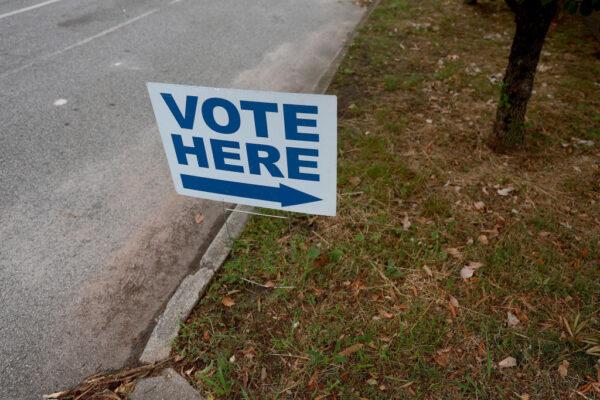A federal judge ruled that a conservative vote-monitoring group that challenged the voter eligibility of hundreds of thousands of Georgia voters during a 2021 runoff election didn’t engage in voter intimidation.
The group True the Vote claimed that nearly 365,000 voters in Georgia weren’t qualified to vote in a 2021 Senate runoff election just after early in-person voting began. True the Vote claimed that many of the voters they listed no longer lived in the counties where they were registered, making them ineligible to vote.

In 2021, Georgia lawmakers upheld individuals’ rights to submit unlimited voter eligibility challenges in restructuring a state election law. This gave True the Vote the opportunity to file their mass challenge. While many of the challenges were dismissed, some people on the list had to appear in front of their local election board to prove their eligibility.
In response to the challenge, Fair Fight Action, a voting rights group founded by former Georgia gubernatorial candidate Stacey Abrams, accused True the Vote of voter intimidation, alleging that their mass voter challenge violated a clause in the 1965 Voting Rights Act.
However, a judge just sided with True the Vote and ruled that Fair Fight Action didn’t sufficiently prove that “any Georgia voter was reasonably intimidated.”
U.S. District Judge Steve Jones, a Barack Obama appointee, ruled that True the Vote’s actions never “caused (or attempted to cause) any voter to be intimidated, coerced, or threatened in voting.”
However, Jones did find fault with True the Vote’s methods for issuing the challenge. He wrote that the list of voters the group compiled “utterly lacked reliability” and “verges on recklessness.”
State election officials only rejected a few dozen ballots cast in the runoff, which Raphael Warnock and Jon Ossoff ended up winning, giving Democrats control of the U.S. Senate.
Jones concluded that the arguments Fair Fight Action outlined in their suit “suggest that any mass challenge of voters near an election (especially if negligently or recklessly made) constitutes intimidation or an attempt to intimidate.”
“In making this conclusion, the Court, in no way, is condoning TTV’s actions in facilitating a mass number of seemingly frivolous challenges,” Jones also wrote. “The Court, however, cannot under the operative legal framework say that these actions were contrary to Georgia law (which is unchallenged by Plaintiffs).”
Fair Fight Action’s executive director, Cianti Stewart-Reid, released a statement following the judge’s ruling, stating that True the Vote’s mass challenge has incited other groups to launch similar campaigns that could undermine eligible voters in other states.
“We believe True the Vote used Donald Trump’s Big Lie as the basis to launch eligibility challenges against more than 364,000 Georgians ahead of the runoff — many of whom were Black, brown, and first-time voters,” stated Stewart-Reid. “Over the last two years, we have seen a growing number of groups follow suit across the country, drawing from True the Vote’s anti-voter playbook to launch their own mass voter challenge efforts that continue to this day.”
True the Vote President Catherine Engelbrecht celebrated the ruling in her statement, saying it “sends a clear message to those who would attempt to control the course of our nation through lawfare and intimidation.”
“This decision is monumental,” True the Vote lead attorney Jake Evans said. “It vindicates True the Vote in totality and establishes that eligibility challenges under Section 230 are a proper method to ensure voter rolls are accurate.”


